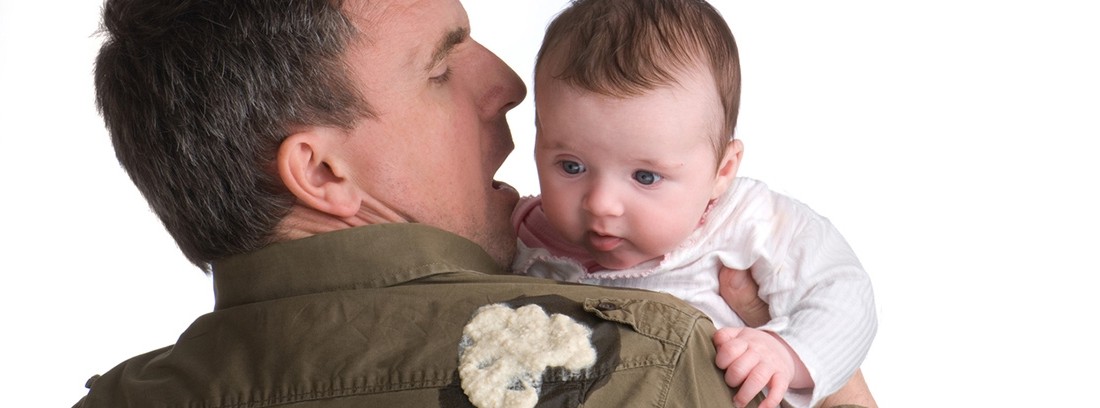Regurgitation and vomiting

Regurgitations and vomiting are very frequent in children and are a very common reason for consulting the Pediatrician.
Threw up
It is the sudden and forced expulsion of stomach contents through the mouth. Normally during the expulsion the muscles of the abdomen contract and it is accompanied by nausea and discomfort.
It usually indicates that the infant is unwell and has some pathology. It is a frequent symptom present in many diseases of the baby. Always consult with the Pediatrician.
Most frequent causes in the baby:
Bad feeding technique
-
gastrointestinal disorders:
- Acute gastroenteritis
- Gastroesophageal reflux
- Food allergy
- Intussusception
- Intestinal obstruction
-
Infections:
- Urinary infection
- Otitis
- Pneumonia
- Meningitis
-
Neurological problems:
- Hydrocephalus
- Head trauma
- Kidney function problems
-
Endocrine and metabolism problems:
- Galactosemia
- Suprarrenal insufficiency
- Side effects of medications (iron, antibiotics)
Treatment
You have to go to the Pediatrician to check the baby and analyze what is the cause of vomiting. When the cause is resolved, the vomiting will go away.
The indiscriminate use of medicines to stop vomiting and nausea is not recommended; They will only be given if prescribed by the Pediatrician.
The most important consequence of vomiting in an infant is dehydration. To prevent this situation, offer small amounts of liquid, about 2 to 5 milliliters every 5 minutes, (water, oral serum, milk).
Regurgitation
It is the sudden and effortless arrival of a small amount of food from the stomach or esophagus into the mouth (popularly called a "puff"). It can happen during the meal or right after it.
In infants it can be common, especially in the stage where they only drink milk; it can affect half of newborns. The smaller the baby, the more often spitting up is seen.
Why?
In newborns the muscles of the lower esophageal sphincter (the entrance to the stomach) are very immature and do not close well. Also the movements of the esophagus, which help to lower the food, are very scarce. This is why part of the stomach content can often return to the mouth without effort.
Impact on the infant
In most cases the baby tolerates spitting up without presenting any discomfort, weight loss or stagnation in height. In these cases, with the passing of the months, and the maturation of the child, the problem will disappear.
Sometimes regurgitations can cause discomfort to the baby because they are very frequent or because there is an alteration of the digestive system; in this case we are talking about gastroesophageal reflux disease (GER). GER is the involuntary passage of stomach contents into the esophagus
The symptoms of gastroesophageal reflux can be: crying immediately after feedings (the baby is in pain), very important and frequent regurgitations, weight and height stagnation (the child does not grow well or gain the weight it should), cough, asthma, pneumonia due to aspiration of food into the lung and respiratory pauses.
Treatment
Since spit-up is normal in infants, no testing or treatment is necessary if the baby's growth is normal, as they improve over time. After four or six months, many babies get better.
Only regurgitations that are very uncomfortable for the infant are treated. Treatment consists of postural measures or special milk (thicker, always prescribed by the pediatrician).
It is recommended to pause in the feeding of the bottle to help expel the gases to the baby, to put it slightly incorporated after the feedings and not to move it excessively after the meals.
In suspected cases of gastroesophageal reflux disease, the baby must undergo tests to confirm the diagnosis and treatment, depending on the severity, can be with medicine or surgery.
(Updated at Apr 13 / 2024)